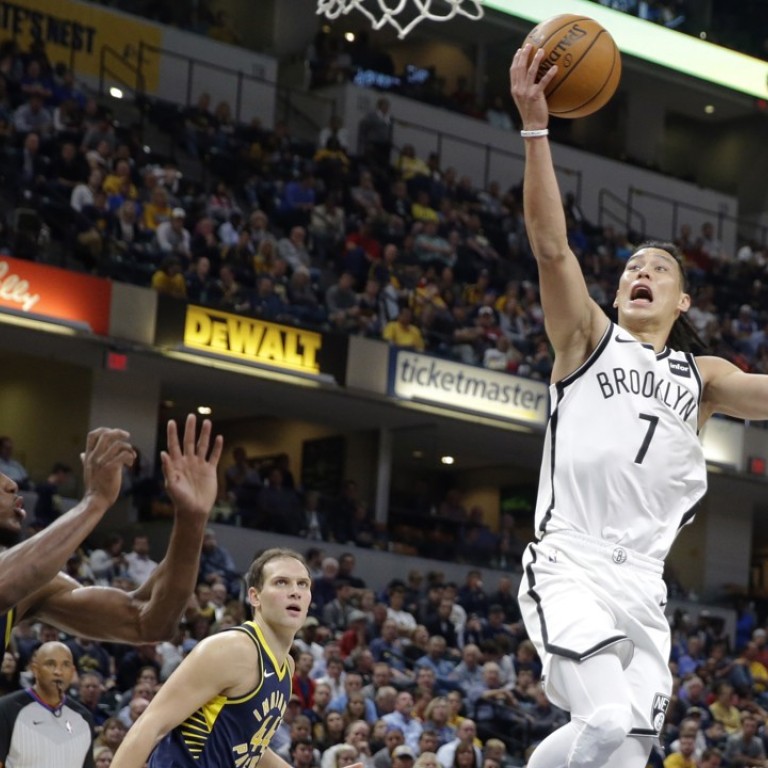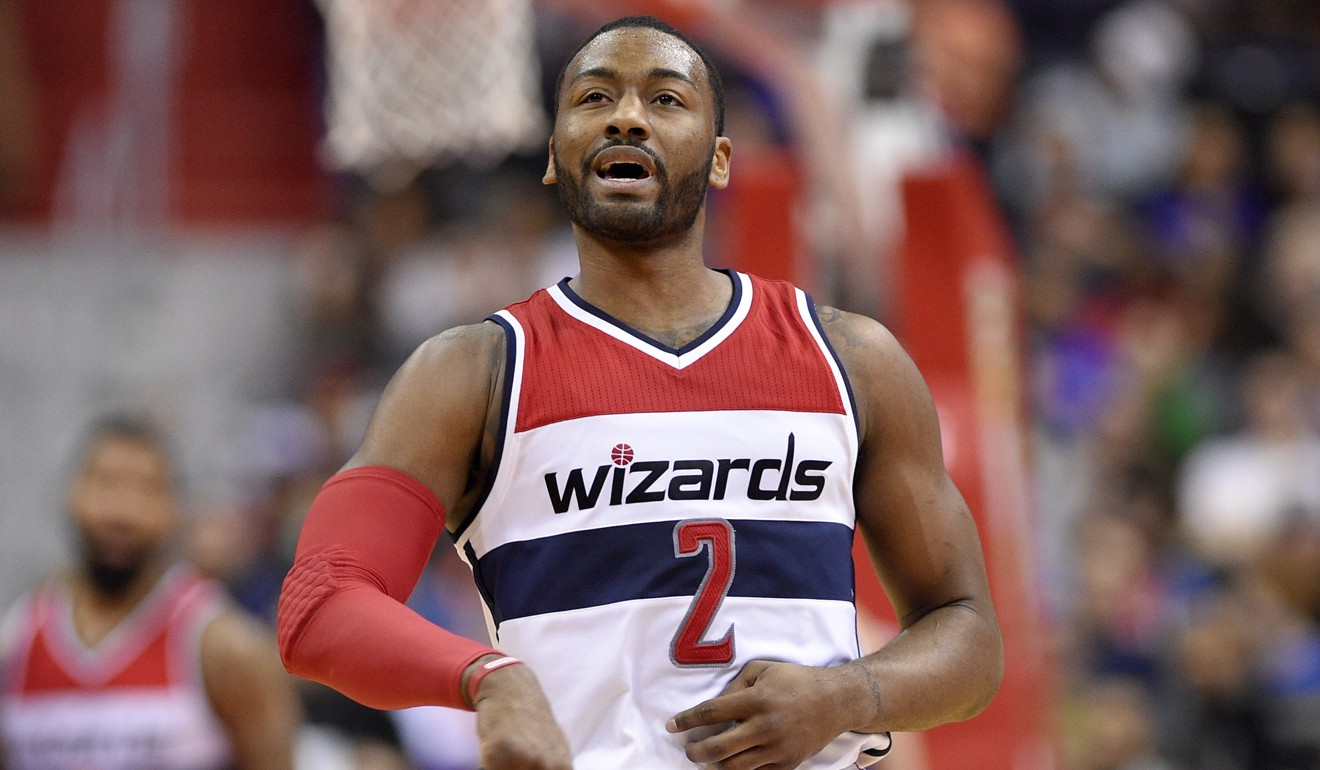
‘Deceptive’ Jeremy Lin, ‘freakish’ John Wall and why we need to mind our language when it comes to assumptions about athletes
- Asian-American NBA star feels his talent has been overlooked in describing him as ‘hard-working’
- Media still falling back on lazy stereotypes, selling fans and players short
He’s talking about the view of him as an Asian-American, something which has shaped the way he has been described as a player. Never mind that he was tied with John Wall for speed when his numbers from the 2012 Portland Invitational Combine were compared, it was always “deceptive” with Lin, while African-American Wall got different descriptors.
“People call him freakishly athletic, freakishly quick and then I’m deceptively quick or deceptively athletic,” Lin explained. Two different modifiers but one end result. “In many ways, he’s overlooked as well.”
Harvard graduate Lin gets it – “I just don’t look the part. And I understand that” – but he thinks he is sold short, as is Wall.
“For him, maybe people are more like, ‘Oh he’s so talented, he’s so talented’ and they take away a little bit from his work that he’s put in. For me, maybe people scale more towards like, ‘Oh, he must work so hard, he must work so hard.’ And maybe not recognise – maybe there’s a little bit of talent because if you took everybody else and they work just as hard as me without talent they still wouldn’t be in the NBA.”

A pair of studies conducted by the University of Colorado and Singapore’s Nanyang Technological University in 2017 looked into racial bias in the public’s perception of black quarterbacks.
Building on previous research that suggested certain words and phrases used in sports media often carry implicit racial bias, participants were given descriptions and photos of professional quarterbacks and found that not only do stereotypes exist but people apply them.
Research in this field for the NFL dates back to the 1970s and a 1977 study, Extent of Covert Racial Prejudice in Pro Football Announcers’ Speech. Another study in the 1990s, Color Blind-sided: Racial Bias in Network Television’s Coverage of Professional Football Game s, found that commentators were more likely to praise white players for intellect and black players for their physical prowess.
The studies have increased as the years have passed but they only highlight that there is an issue and it is ripe for research.
It is not confined to the US and is probably most keenly felt in football. The world game is played by the most nations and is therefore more diverse than North American sports.
Reading about his “tireless work rate” is often the sign of a journalist who has the very opposite. Similarly, “lung-busting” or mentions of how unselfish he is, how he puts the team first.
The truth is he’s a flair player and one who often shoots rather than lay the easy pass off, these are not criticisms rather the traits you want in a forward.
It is hardly his fault that he shares a nationality with Park Ji-sung, the former Manchester United midfielder who was famed for tireless displays, or criticised if you’re Andrea Pirlo. The South Koreans are very different players but it feels like some of the language used for Park is projected on to Son.
Similarly, Paul Pogba might share the same telescopic legs, midfield berth and number of World Cup winner’s medals as Patrick Vieira but they are not the same player. Yet both are talked of as “powerful” which may go some way to explain why former hardman turned equally harsh pundit Graeme Souness seems perpetually disappointed with the Manchester United midfielder, expecting the laid-back lynchpin to be a very different footballer.
At this summer’s World Cup, former Croatia manager Slaven Bilic said in his role as a pundit for UK television that Senegal would need qualities such as “power” and “pace” to beat Poland in their group game. Aliou Cisse’s side did triumph but because they played better football and it was Poland who resorted to a physical game as they looked to snatch a point.
Bilic’s comments were likely not deliberately intended to fall back on the crutch of prejudice, the same is true of most in the media, but it is something that can be changed and perhaps will change as those in the punditry positions become more representative of those playing the game.
That is happening slowly but in the meantime, fans can call the media out on it, and as members of the media we can take care to step away from lazy stereotypes, which we should be doing anyway.
It’s time for us all to mind our language – to do anything else is just outright deceptive.

